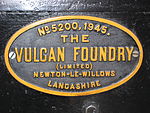Red Bank secure unit

Red Bank secure unit, part of Red Bank Community Home, was one of several English Local Authority Secure Children’s Homes (a juvenile detention facility) located in Newton-le-Willows, Merseyside. It opened in 1965, when it was one of three such units, and accepted both boys and girls. The unit closed in May 2015.In 1990, when it housed 26 boys and young men convicted of serious crimes including murder, rape and arson, John Evans, the local member of parliament, described its work as "excellent and valuable" and said, "the special unit is not a harsh place, but it has rules that must be adhered to. The young people learn self-control and discipline in an affectionate environment that is sensitive to their special needs." It later specialised in accommodating child sex offenders. In 2009, it was one of nine secure children's homes in England.Since the 2015 closure, it has been alleged that at least one of the former care units were being used as a police training establishment.It is now a school for SEMH children called Willow Bank
Excerpt from the Wikipedia article Red Bank secure unit (License: CC BY-SA 3.0, Authors, Images).Red Bank secure unit
Central Way,
Geographical coordinates (GPS) Address Nearby Places Show on map
Geographical coordinates (GPS)
| Latitude | Longitude |
|---|---|
| N 53.445545 ° | E -2.612708 ° |
Address
Central Way
WA12 8EF , Vulcan Village
England, United Kingdom
Open on Google Maps






